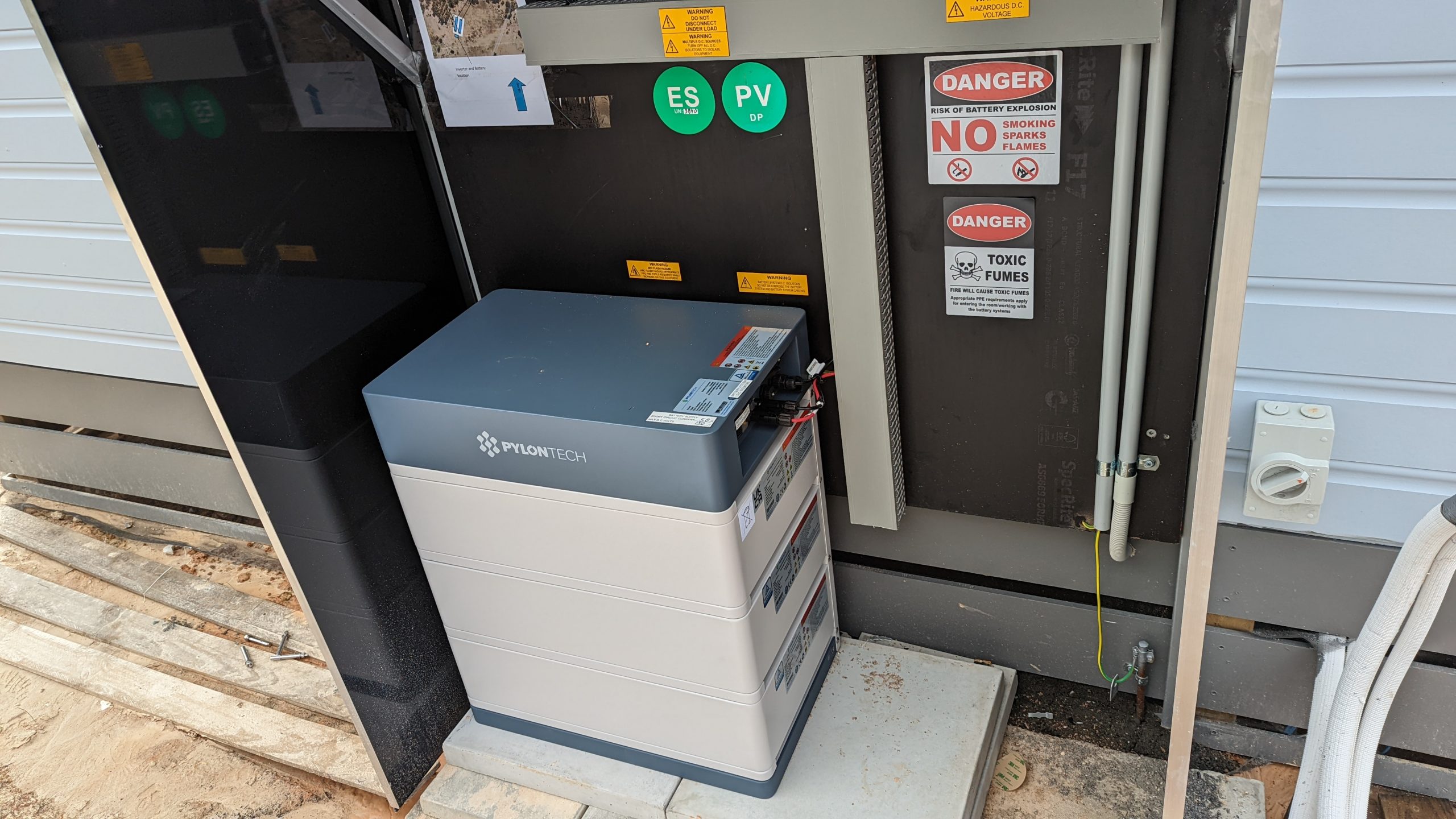 Off-Grid Solar Australia
Off-Grid Solar Australia

A solar power system cannot function without solar batteries. To use it when the sun is not shining, they store the energy produced by solar panels during the day. Solar battery technologies come in various forms, each with unique benefits and drawbacks.
Lead-Acid Batteries
The oldest rechargeable battery type is the lead-acid battery, and some solar power systems still use them. Although durable and reasonably priced, they have a short lifespan and need regular maintenance. Lead plates and sulfuric acid electrolytes make up lead-acid batteries. They are widely accessible, reasonably priced, and trustworthy. Its drawbacks, however, are their weight, maintenance requirements, short lifespans, and low energy density.
Lithium-Ion Batteries
The most widely used type of solar battery technology today is lithium-ion. They are durable, practical, and lightweight. Consumer electronics frequently employ lithium-ion batteries, and solar power systems increasingly use them. They can store energy in a bit of space thanks to their high energy density. They are small, durable, require little upkeep, and have a high energy density. They may also cost more than lead-acid batteries and be more prone to thermal runaway. However, if not disposed of properly, they may potentially be dangerous.
Flow Batteries
A more recent advancement in solar battery technology is flow batteries. To function, they store energy in two different tanks containing liquid electrolytes. The electrolyte flows between the tanks when the battery is charged, producing electricity. Flow batteries are more expensive than other batteries but can store more energy and have a longer lifespan. High efficiency, scalability, the ability to store enormous amounts of energy, and a long lifespan are a few of their benefits. Their drawbacks include complex design, a higher cost than other battery types, and regular maintenance requirements.
Sodium-Based Batteries
A new and promising technique for storing solar energy is sodium-based batteries. To keep energy, they substitute sodium ions for lithium ones. Sodium is a more sustainable choice because it is significantly more plentiful than lithium. Compared to lithium-ion batteries, sodium-based batteries can store more energy and have a longer lifespan. High energy density, low maintenance requirements, and long lifespan are essential advantages of sodium-based batteries. As a result, the drawbacks include a need for more availability and development still in its infancy.
Zinc-Bromine Batteries
Another variety of flow batteries is the zinc-bromine battery. They function by storing energy in two different liquid electrolyte tanks, one of which contains zinc and the other which contains bromine. When the battery is charged, the reaction between zinc and bromine produces electricity. Batteries made of zinc-bromine are durable, reasonably priced, remarkably efficient and have a long lifespan. Some drawbacks include frequent maintenance and being sensitive to temperature changes.
Green Energy with a Catch
Production: Mining for raw materials like lithium, cobalt, nickel, and copper is necessary for creating solar batteries but can harm the environment, including habitat destruction, water pollution, and greenhouse gas emissions.
Utilization: When used to store renewable energy sources like solar and wind power, solar batteries have a beneficial environmental impact since they lessen the need for fossil fuels and the resulting greenhouse gas emissions. Batteries can potentially waste energy and raise carbon emissions if they are not used properly.
Disposal: Solar batteries have two disposal options when they end their useful life. Damage to human health and pollution might result from improper disposal, and the recycling process may also hurt the environment in terms of energy use and garbage production.
It’s essential to consider the environmental impact of the battery’s manufacture and disposal in addition to considerations like cost, efficiency, and lifespan when selecting the best solar battery technology. To make them even more environmentally friendly, efforts are being made to boost the sustainability of solar battery technology.
G’day, Australia! We’re here to shake things up in the energy world, right? We’ve got these ripper solar systems, decked out with the latest Sungrow and Deye inverters and those beaut Sungrow and Pylontech lithium batteries. They’re a real game-changer for places like Ballarat, Victoria, and all over Oz! Our Top Solar Gear Going All …
Continue reading “Givin’ Aussie Homes a Fair Go with Top-Notch Solar Tech”
1. Jinko Solar Panels: 2. Trina Solar Panels: 3. SunPower Solar Panels: Conclusion When choosing solar panels, consider factors such as efficiency, durability, warranty, and budget. Jinko offers cost-effective and reliable options, Trina provides a balance of performance and value, while SunPower stands as a premium choice with top-tier efficiency. Each brand caters to different …
Continue reading “Comprehensive Solar Panel Review: Jinko, Trina, and SunPower”
1. Pylontech Batteries: 2. PowerPlus Energy Batteries: 3. BYD Batteries: 4. Tesla Powerwall: Conclusion When selecting a solar battery, factors like capacity, compatibility, longevity, and budget play crucial roles. Pylontech, PowerPlus Energy, BYD, and Tesla offer diverse options catering to different needs and preferences. Whether for a small residential setup or a larger, more complex …
Continue reading “In-Depth Review of Solar Batteries: Pylontech, PowerPlus, BYD, and Tesla”
Inverter Equipment Review: Sungrow, Deye, Victron, and Selectronic 1. Sungrow Inverters: 2. Deye Inverters: 3. Victron Energy Inverters: 4. Selectronic Inverters: Conclusion Each of these inverter brands – Sungrow, Deye, Victron, and Selectronic – offers unique strengths suited to different solar energy needs. Your choice should depend on your specific requirements, whether it’s for residential, …